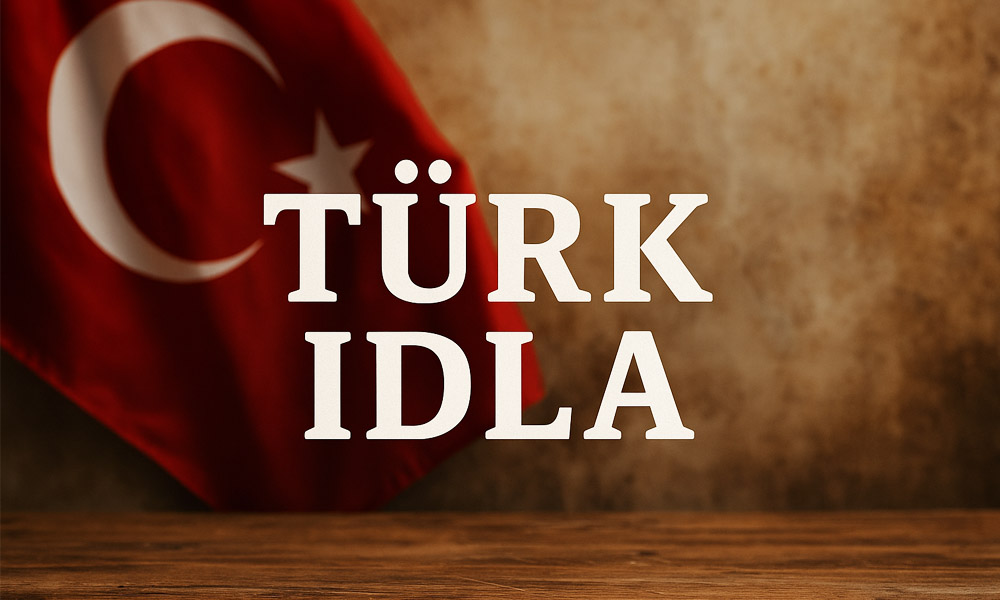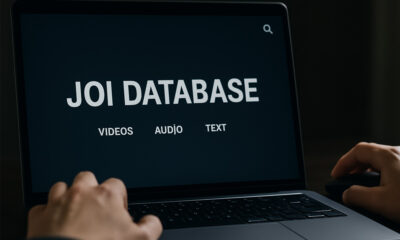Guide
Türk Idla: The Mysterious Phrase Everyone’s Googling in 2025
Published
6 months agoon
By
George
Have you ever seen a word online that made you stop and ask, “Wait… what does that even mean?” That’s exactly what happens when people come across the phrase Türk Idla.
At first glance, it feels like something important. It sounds Turkish. It looks like it should mean something. But when you try to search for it, there’s no clear answer. That’s what makes it so interesting — and why more and more people are googling Türk Idla in 2025.
In this article, we’re going to explore the mystery step by step. We’ll look at where this phrase may have come from, if it has any real meaning, and why it’s getting attention today. Don’t worry — everything will be explained in a simple and easy way.
Let’s Break Down the Phrase “Türk Idla”
Let’s start with the basics. The word “Türk” is easy to understand. It means “Turkish” in Turkish. It refers to Turkish people, language, or culture. That part is clear. But then there’s “Idla” — and that’s where things get confusing.
If you check a modern Turkish dictionary or try to ask a Turkish speaker, they will probably say the same thing: “I’ve never heard of it.”
“Idla” is not a common Turkish word. It’s not something you’ll hear in daily conversations, TV shows, or books. So where does it come from? Is it a mistake? Or is it something really old that we’ve forgotten?
Could It Be an Old Ottoman Word?
This is where things get interesting.
Before modern Turkish became what it is today, there was a different version of the language called Ottoman Turkish. It was used during the time of the Ottoman Empire and was a mix of Turkish, Arabic, and Persian.
Many words from that time are no longer used today. When Turkey changed its language system in the early 1900s, a lot of old words were removed or replaced.
Now here’s the cool part: there was a word in Ottoman Turkish that sounds a lot like “Idla.” It was spelled idla’ (with a little apostrophe at the end). And guess what? It actually had a meaning!
What Did “idla’” Mean Back Then?
The word idla’ was used to describe a very specific feeling. It meant the uncomfortable or bloated feeling you get after eating too much.
It wasn’t a serious illness — just that heavy, full feeling after a big meal. Imagine eating a giant plate of lamb, rice, bread, and sweets at a holiday dinner. Then afterward, you lean back and say, “Ugh, I ate too much.” That’s idla’.
People in the Ottoman Empire might have said something like, “I have a little idla’ after that feast.”
Funny how one little word could describe something so familiar, right? But now, in modern Turkish, no one uses it anymore. That’s why when people see Türk Idla, it feels strange. They’re seeing something that might have roots in the past, but no one’s totally sure.
Is Türk Idla a Real Phrase in Today’s Turkish?
Let’s be clear: No, Türk Idla is not a phrase used in modern Turkish.
It’s not in school textbooks. It’s not in the news. It’s not something people say. If you asked a Turkish person in 2025 what it means, they would probably just shrug or smile in confusion.
That’s what makes it so curious. People are seeing it online, hearing it in strange places, or coming across it in comments and memes, but no one really knows where it started. And that mystery just makes people want to know more.
So the big question is: Why are people searching for it so much if it doesn’t even exist in the language today?
Let’s keep exploring.
Could It Be a Typo or Just a Simple Mistake?
Sometimes, things that go viral on the internet start with something simple: a typo.
Maybe someone meant to write something else, but accidentally typed “Türk Idla” instead. Then another person copied it. Then someone else asked about it. Before you know it, it becomes a strange internet puzzle.
Here are a few real Turkish phrases that are kind of close:
-
Türk İlaç, which means “Turkish medicine”
-
Türk İdil — a person’s name (Idil is a common girl’s name)
-
Türk İdare, which means “Turkish administration”
It’s easy to see how someone might mix up a letter or spell something wrong, especially in a tweet, meme, or fast comment. So maybe Türk Idla is just a tiny typing error that turned into a big mystery.
Could It Be a Username or Online Name?
Now let’s look at another fun possibility.
In today’s digital world, people love creating unique usernames. Think about gamer tags, TikTok handles, Instagram names, or even YouTube channels. Many of them sound like real words, even if they’re made up.
Türk Idla sounds like it could totally be someone’s cool online name. It has “Türk” for national pride, and “Idla” just sounds futuristic and different.
Maybe it started as someone’s profile name. Maybe they used it in a game, and others got curious. That could explain why people started searching for it, trying to figure out what it means or where it came from.
Even though it’s not famous yet, it could be hiding in some small digital space — a Discord server, a story, or an indie project.
Could “Türk Idla” Have a Hidden Meaning?
Even though Türk Idla is not a real word, it feels like it means something. It has a strong sound. It sounds a little poetic. It makes people stop and wonder.
So maybe it’s more than just a mix-up. Maybe people see it as a symbol.
For example, “Türk” is clear — it stands for Turkish people, culture, and identity. But “Idla” could be something deeper. It could be a made-up word that feels powerful, emotional, or mysterious. Some people may use it to express an idea, like pride, strength, or creativity. Even if it has no dictionary meaning, it feels like it carries energy.
That’s what makes Türk Idla interesting. Sometimes, people connect to words not because they understand them, but because they feel them. And this phrase feels like something special.
Is It Part of a Bigger Trend or Movement?
Now here’s where things really get exciting.
In 2025, many young people in Turkey are looking for new ways to express who they are. They want to be modern, creative, and connected to technology — but also proud of their roots and culture.
That’s where Türk Idla might come in. It’s starting to be used in digital art, music, fashion, and social media. People are creating content that mixes Turkish tradition with a fresh, bold look. Some call this movement “digital nationalism” — not in a political way, but as a way to say, “I’m Turkish, and I’m proud of it — in my own way.”
So Türk Idla could become a kind of flag for this new digital identity. A name that brings together old culture and new creativity.
What Are People Doing with “Türk Idla” Online?
Go online in 2025, and you might start to see Türk Idla in some surprising places.
It’s being used as a hashtag on TikTok and Instagram. Some artists are putting it in their bios. Others are using it in video titles or digital designs. It pops up in memes, short animations, and even music beats.
People are talking about #TürkIdla as if it’s a secret club — a space for modern Turkish thinkers, makers, and dreamers. It’s not just about being cool. It’s about feeling connected to something deeper.
It’s amazing how one strange phrase, with no official meaning, can start to grow into a shared online culture.
Could It Be a Brand or Business Name?
This part might surprise you, but Türk Idla could be a perfect brand name.
It’s short. It sounds unique. It has cultural roots. And best of all, it’s not overused.
In 2025, lots of new startups, digital platforms, and creative projects are looking for names that stand out. If you’re building something related to Turkish identity, art, tech, or community, Türk Idla could be a powerful, meaningful choice.
Whether it’s a clothing line, a music project, a podcast, or even an education platform, it works. Because it’s flexible. It’s fresh. And it’s memorable.
Why Are People Still Searching for Türk Idla?
The mystery is part of the fun.
People love finding strange words online and trying to figure them out. It’s like solving a riddle or joining a treasure hunt. With Türk Idla, it’s even more fun because no one has a clear answer. Some think it’s a typo. Others say it’s a cultural movement. And a few think it’s just a cool-sounding phrase.
But all of this searching, sharing, and wondering is what makes the phrase powerful.
In a way, Türk Idla is a mirror. People see what they want to see in it — history, art, emotion, or identity. And that’s what keeps the conversation going.
What Does This Teach Us About Language?
The story of Türk Idla shows us something really important: language is always changing.
Old words can come back. New words can be born from mistakes. And sometimes, a made-up phrase can mean more than a real one.
In the past, idla’ was just a small word about feeling full after a meal. Today, Türk Idla could be a symbol of cultural pride, tech dreams, or digital creativity.
That’s the beauty of language — it’s not just about rules and grammar. It’s also about feeling, imagination, and connection.
Bottom-Line
So… is Türk Idla real?
If you’re asking about dictionaries or textbooks, the answer is no.
But if you’re asking about ideas, creativity, or online culture, then yes, it’s very real. It’s a new kind of real. A phrase that lives on the internet, in people’s minds, and maybe in the future of Turkish identity.
It’s a reminder that even the weirdest, most random word can spark something big.
So the next time you see a strange phrase like Türk Idla, don’t scroll past it. Ask about it. Talk about it. Because who knows? You might just be looking at the next big idea.
(FAQs)
Is “Türk Idla” a real word in the Turkish language?
No! It doesn’t exist in modern Turkish at all — not in schoolbooks, not in dictionaries, nowhere.
Did “Idla” ever have any meaning in history?
Yes, surprisingly! In old Ottoman Turkish, idla’ meant the sick or full feeling after overeating.
Why is everyone googling “Türk Idla” in 2025?
Because no one knows what it means, and that mystery makes it go viral.
Could “Türk Idla” just be a typo that turned into a trend?
Absolutely. It might be a mistake for “Türk İlaç” or “Türk İdil” — and now it’s trending worldwide.
Is “Türk Idla” becoming a real movement or brand?
Yes! People are using it in art, tech, and online culture as a symbol of modern Turkish identity.
You Might Also Like: Gelboodu

Tips and Tricks for First-Date Men’s Fashion in 2026

Call My Doctor Health Care LLC Sets a New Standard for Home Healthcare in Dubai

StableProxy Review: What Is It and Why You Might Need It in 2026

Recording Apps: Best Picks for Audio Capture in Screen Recording (2026 Guide)

7 Curb Appeal Improvements Your Home Might Be Crying Out For

Why Ahmedabad is a Must Visit City in India?

Trend vs Investment: Which Watch Features Stay Stylish for Years (Crystal, Case, Dial, Bracelet)

Corporate Reputation Management and the Cost of AI-Generated Errors

Hidden Costs of Economy Umrah Packages: A Breakdown of Extra Fees

RF PCB Solutions: How FastTurn PCB Powers High-Frequency Electronics with Precision

Who Is Marlene Knaus? The Untold Story of Niki Lauda’s First Wife

Jacqueline Bernice Mitchell: The Inspiring Story of Jerry Rice’s Ex-Wife

Curious About JOI Database? Read This First Before You Click Anything

Mickey Middleton: The Untold Story of Bryan Cranston’s First Wife

Where Is Barbara Boothe Now? Inside Her Life After Larry Ellison

Wendy Lang: Meet the Therapist Married to Cenk Uygur

Alisande Ullman Today: What Happened After Her Divorce from Leslie Nielsen?

Where Is Noelle Watters Now? Jesse Watters’ Ex-Wife’s Life After Divorce

Should You Use Wooflix in 2025? Honest Review and Best Alternatives

Where Is Tanya Hijazi Now?: All About Rick James’ Former Wife

Tips and Tricks for First-Date Men’s Fashion in 2026

Call My Doctor Health Care LLC Sets a New Standard for Home Healthcare in Dubai

StableProxy Review: What Is It and Why You Might Need It in 2026

Recording Apps: Best Picks for Audio Capture in Screen Recording (2026 Guide)

7 Curb Appeal Improvements Your Home Might Be Crying Out For

Why Ahmedabad is a Must Visit City in India?

Trend vs Investment: Which Watch Features Stay Stylish for Years (Crystal, Case, Dial, Bracelet)

Corporate Reputation Management and the Cost of AI-Generated Errors

Hidden Costs of Economy Umrah Packages: A Breakdown of Extra Fees

RF PCB Solutions: How FastTurn PCB Powers High-Frequency Electronics with Precision
Categories
Trending
-

 Celebrity8 months ago
Celebrity8 months agoWho Is Marlene Knaus? The Untold Story of Niki Lauda’s First Wife
-

 Celebrity5 months ago
Celebrity5 months agoJacqueline Bernice Mitchell: The Inspiring Story of Jerry Rice’s Ex-Wife
-

 Entertainment6 months ago
Entertainment6 months agoCurious About JOI Database? Read This First Before You Click Anything
-

 Celebrity6 months ago
Celebrity6 months agoMickey Middleton: The Untold Story of Bryan Cranston’s First Wife
